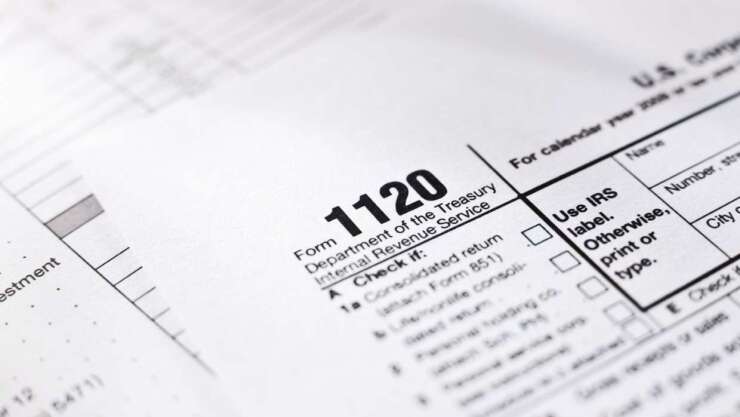The average effective tax rate of profitable large corporations fell from 16% in 2014 to 9% in 2018 after passage of the Tax Cuts and Jobs Act of 2017, according to a new government report.
The trend of large multinational corporations paying a relatively small percentage of taxes, no taxes at all, or receiving hefty tax refunds or tax losses that can be carried over to future years, actually predates passage of the TCJA. The
In the first year after the law went into effect, the effective tax rate for profitable corporations was 8.9%, a 40% drop from the prior year, and 34% of profitable corporations paid zero in taxes, a 25% increase from the previous year.

The TCJA lowered the top corporate tax rate from 35 to 21%, but other provisions of the tax overhaul altered effective tax rates — the percentage of income paid after tax breaks — in more complex ways. For example, changes to the way foreign income is recognized created tax liability from income that hadn't been previously taxed under U.S. law, but often at lower rates.
In the report, the GAO looked at large corporations that filed Schedule M-3 with the Internal Revenue Service. That form has to be filed by corporations with $10 million or more in assets. The report found that among profitable large corporations, on average, 25% had no tax liability. Among large corporations, from 2014 through 2018, an average of approximately 44% reported a loss in a given year. Among profitable large corporations, the average effective tax rates varied between 2014 and 2018, with effective tax rates based on actual tax liability as high as 16% in 2014 and as low as 9% in 2018. Tax rates based on corporations' financial reports (known as book tax) followed similar trends. The Inflation Reduction Act of 2022 imposed a minimum book tax of 15% on corporations that earn over $1 billion in revenue (
However, that won't make up for all the tax reductions on most corporations in the TCJA, which lowered their statutory tax rate from 35% to 21%.
But while effective tax rates decreased in 2018, total tax liability among profitable large corporations was slightly higher in both 2017 ($278 billion) and 2018 ($267 billion) than it was in 2016 ($262 billion), according to the GAO.
The picture is somewhat nuanced as the TCJA made some changes on the international tax side aimed at discouraging U.S.-based multinationals from moving their domicile to low-tax countries through corporate inversions. The "TCJA increased foreign-sourced income subject to tax in the U.S. and increased repatriations of income previously held offshore," said the report. "However, TCJA often taxed this income at reduced rates. These changes may have contributed to a lower effective tax rate in 2018, but also generated tax liability from income that was previously not taxable under U.S. law."
The TCJA also made other changes, such as temporary full expensing for certain assets (also known as bonus depreciation), and a limit on the interest deduction for corporations, lowering it to 30% of adjusted taxable income. The GAO didn't have the data available to assess those changes and some of them are only now going to take effect after Congress failed to reach an agreement last month on extending some of those tax breaks.
Senate Finance Committee chair Ron Wyden, D-Oregon, and Sen. Bernie Sanders, I-Vermont, had requested the analysis from the GAO, and they issued statements Friday in response to the report condemning the Republican-led TCJA and praising the 15% minimum tax in Democrats' Inflation Reduction Act.
"Instead of cutting vital and popular programs like Social Security and Medicare, we need to repeal the Trump tax breaks for the rich and demand that the largest corporations in America finally start paying their fair share of taxes," Sanders stated.





